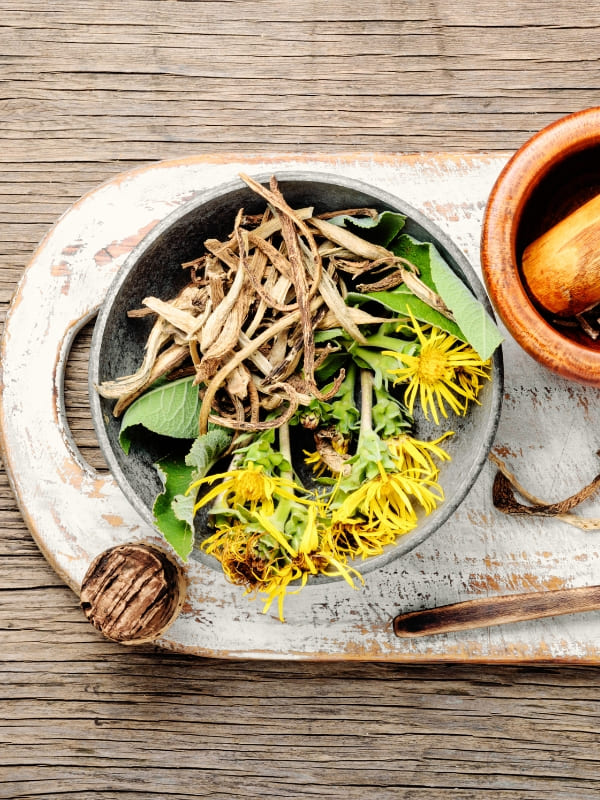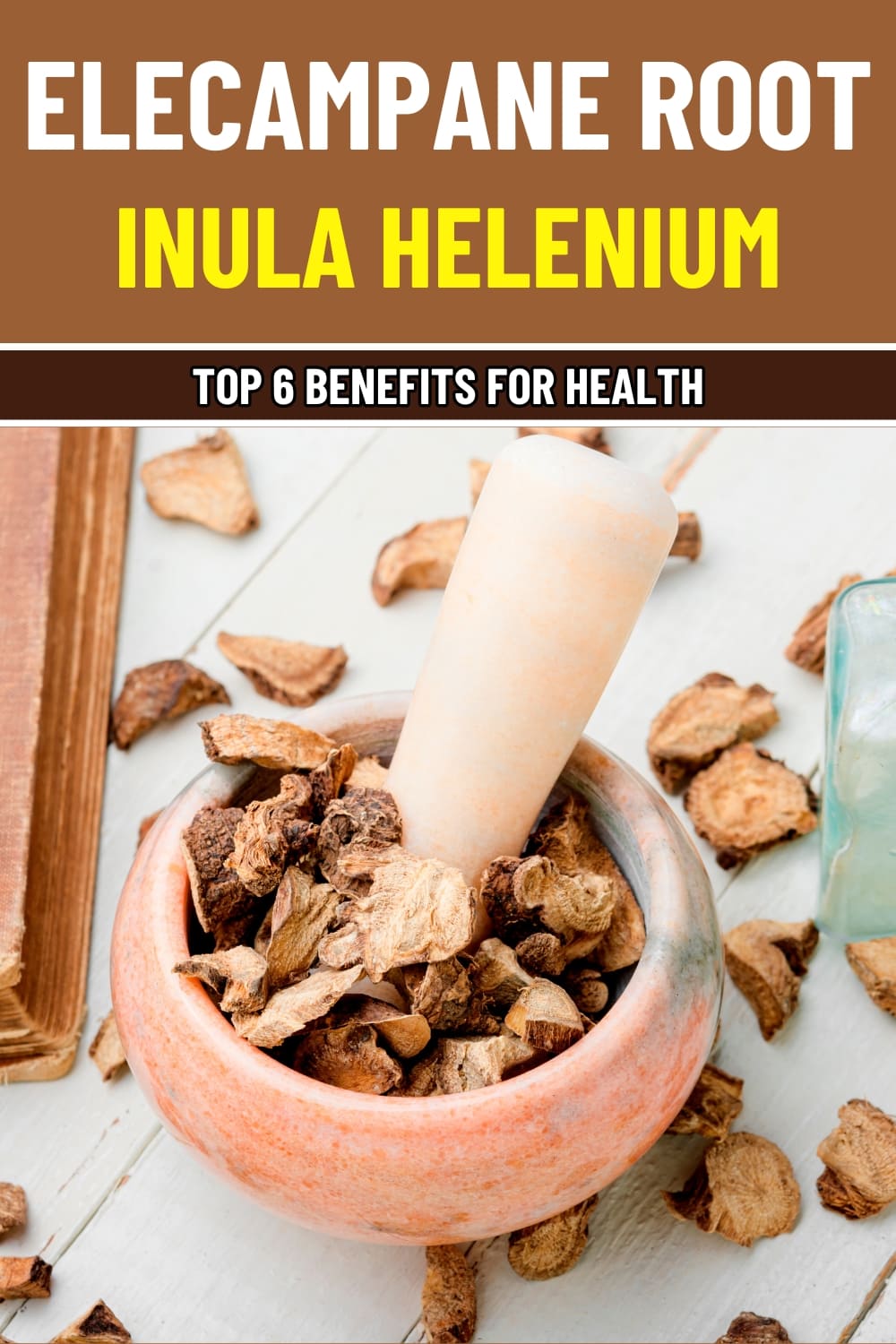Have you been searching for a natural way to support your respiratory health, soothe digestion, or reduce inflammation? Elecampane root (Inula helenium), a time-tested herbal remedy, could be the solution you need.
Packed with beneficial compounds like alantolactone and inulin, this herb has been celebrated in traditional medicine for centuries.
Let’s uncover why this herb might deserve a spot in your wellness routine.
#1. Supports Respiratory Health
Elecampane root is famous for its ability to soothe respiratory conditions like bronchitis, coughs, and throat infections.
The active compound alantolactone helps thin mucus, making it easier to expel, while its anti-inflammatory properties reduce airway swelling.
A study published in Natural Product Research highlighted its potential in managing chronic obstructive pulmonary disease (COPD), showing it can suppress inflammation and relax the airways.
Consistent use over a few weeks may alleviate chronic respiratory issues.

#2. Reduces Inflammation
Chronic inflammation is a root cause of many diseases, and elecampane’s sesquiterpene lactones, including dehydrocostus lactone, have potent anti-inflammatory effects.
Studies suggest these compounds inhibit inflammatory pathways, making elecampane a natural option for conditions like arthritis or inflammatory bowel disease.
While more human trials are needed, laboratory research shows that regular use may help reduce inflammation over time.
#3. Boosts Digestive Health
Elecampane root is rich in inulin, a prebiotic fiber that nourishes beneficial gut bacteria. Inulin not only supports healthy digestion but may also reduce bloating, constipation, and discomfort.
A 2017 review in the Journal of Functional Foods found that inulin can improve gut microbiome diversity and reduce gastrointestinal inflammation.
Drinking elecampane tea daily for 1–2 weeks could help improve digestion and overall gut health.

#4. Exhibits Antimicrobial Properties
This herb’s antibacterial and antifungal effects make it useful for fighting infections.
Test-tube studies have shown that alantolactone in elecampane is effective against Staphylococcus aureus, including antibiotic-resistant strains like MRSA.
Additionally, elecampane has shown activity against Candida albicans, a fungus that can cause infections. Regular use may help prevent and combat minor bacterial and fungal infections.
#5. May Have Anticancer Potential
Elecampane’s compounds, particularly alantolactone, have shown promising results in laboratory studies for their ability to inhibit cancer cell growth.
Research published in Molecules highlighted its potential against several cancers, including breast, lung, and pancreatic cancers. Alantolactone promotes apoptosis (cell death) in cancer cells while sparing healthy cells.
While human studies are limited, these findings suggest it could be a valuable complementary therapy.

#6. Promotes Skin Health and Wound Healing
Elecampane’s antimicrobial and anti-inflammatory properties make it beneficial for skin issues like eczema, psoriasis, and minor wounds.
Topical application of elecampane oil or cream can reduce redness, irritation, and infection. Studies have also noted its ability to speed up wound healing by promoting cell regeneration.
For best results, apply it to the affected area 2–3 times daily.

How to Use Elecampane Root
- Tea: Steep 1–2 teaspoons of dried elecampane root in boiling water for 10–15 minutes. Drink 1–2 cups daily to support respiratory health, digestion, and immune function.
- Tinctures: Elecampane tinctures are available in health stores. Use 1–2 ml diluted in water up to three times daily, following the manufacturer’s instructions.
- Powder: Mix 1/4–1/2 teaspoon of powdered elecampane root into teas, smoothies, or warm water. Consume once or twice daily for a concentrated dose.
- Topical application: Apply elecampane-infused oils or creams directly to the skin for wounds, inflammation, or eczema. Use 2–3 times daily for best results.

Cautions and Precautions
If you’re sensitive to plants in the Compositae family (e.g., dandelion, artichoke, yarrow), you may experience an allergic reaction to elecampane. Symptoms include skin rashes or contact dermatitis.
Elecampane may interact with sedatives, blood pressure medications, and diabetes treatments. Avoid combining it with other sedative supplements or drugs.
Due to limited safety data, elecampane is not recommended for pregnant or breastfeeding individuals.
Excessive intake can cause nausea, dizziness, or allergic reactions. Always stick to the recommended dose and consult a healthcare provider if you experience adverse effects.
Disclaimer
This article is for informational purposes only and is not a substitute for professional medical advice.
Always consult a healthcare provider before starting any new supplement, including elecampane root.

Elecampane Root: A Powerful Herbal Ally for Health and Wellness
